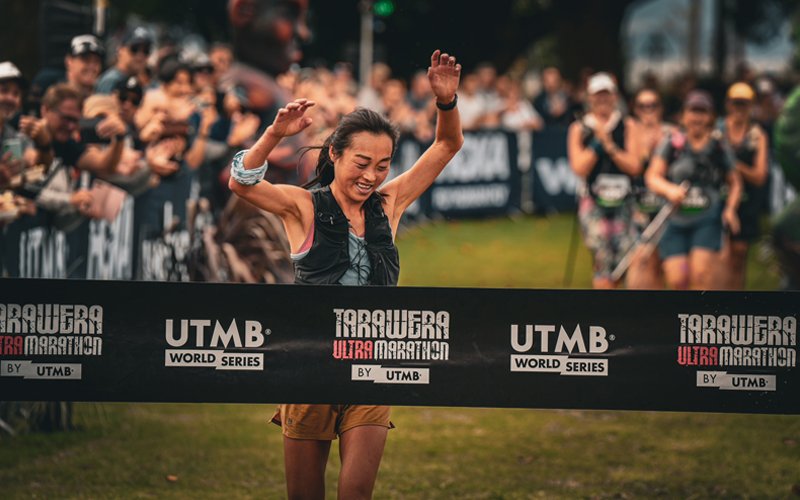5 Jul 2023
Outside of work, Nelson-based structural engineer Nancy Jiang MEngNZ competes at an elite level in trail and mountain running, at distances ranging from marathon to 160km. In a typical year, she spends three months overseas training and competing.
What three words sum up ultra-running as a hobby?
Nature, resilience, mindset.
When did you first start mountain running and trail running?
I started running in primary school, but in 2017, when I was living in the French Alps, I changed from focusing on road marathons to trail and mountain running. Travel by foot was the easiest way to explore the Alps and if I ran, I could travel further and see more.
What do you love most about running?
Believe it or not, I find running very relaxing. Maybe not so much for the body but definitely for the mind. I think the human mind is overstimulated in the busy modern world. When I am out on the trails, I am only concerned with how I am feeling in the moment and where I am in the present.

Photo: Luke O’Shea Photography
Where has this sport taken you?
I did a 100km race last year that started in Italy, went through Switzerland at halfway and finished in France. So it has literally taken me through three countries in one day via six mountain passes.
What is your greatest achievement with running?
I recently won the highly competitive 102km Tarawera Ultramarathon against a strong field of women runners. Because the race has recently became a qualifying race for Ultra Trail Mont Blanc and a golden ticket race for Western States, it now attracts a lot of international pro athletes. I am not a sponsored full-time athlete and still work full time, but it is satisfying to see that I can hold my own up against them.
Do you listen to anything while you run?
No. I prefer to be in tune with my surroundings and how my body is feeling while I am running, rather than distract myself from it with music or podcasts.
Tell us something about your involvement with running that might surprise people.
I stopped running halfway through high school. It was only after working at Beca that I started again, thanks to the social and active ethos of the Hamilton office – I owe a lot to them for reigniting my passion for the sport.
Does being an engineer bring any advantages to the way you approach running?
It requires good problem-solving skills to execute an ultra-race well. Due to the distance and duration, many things can go wrong – especially in the nutrition and hydration side of things – so being able to troubleshoot issues as they arise, rather than panic, is useful.
How much time a week do you devote to running?
In New Zealand, my total running time a week is around 12 hours, plus about three hours of strengthening work and a few hours of mobility work. When I am overseas, it can be as much as 20 hours of running time a week.
How do you juggle your running with work?
I believe if you really want to do something, you make the time for it. I do a lot of my training before work and sometimes incorporate my commute in my training. My work is flexible with when I start or finish and I can take my laptop home or elsewhere to work remotely.
What’s next for you?
I received an entry into the Western States Endurance Run (100 miles/160km) from my win at Tarawera. [As EG goes to print] I'm currently in America preparing for the race. It is my first 100 mile race and first time in the States – an exciting adventure.





